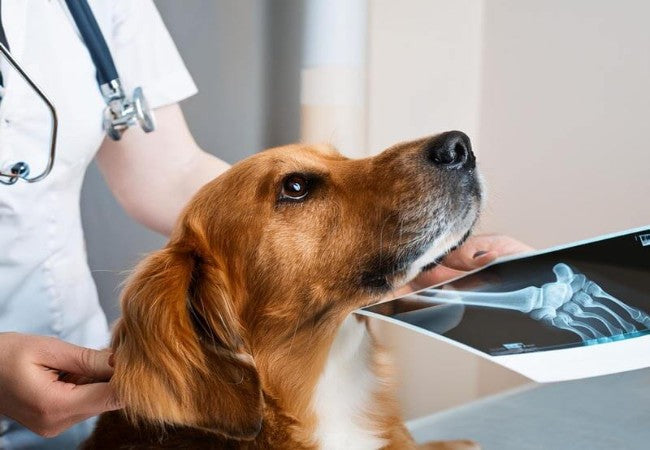Veterinary Guide to Canine Hypokalemia (Low Potassium) 2025 🐶🩺

In this article
Veterinary Guide to Canine Hypokalemia (Low Potassium) 2025 🐶🩺
By Dr. Duncan Houston BVSc
🧬 What Is Hypokalemia?
Hypokalemia is defined as abnormally low blood potassium—usually <3.5 mmol/L in dogs. It disrupts nerve, muscle, and heart function due to altered cell membrane potentials.
👥 Who’s at Risk?
- Dogs with chronic kidney disease due to excessive urinary potassium loss.
- Cases with vomiting, diarrhea, or prolonged anorexia leading to GI losses.
- On medications: diuretics, insulin/dextrose, or receiving IV fluids without added potassium.
- Endocrine disorders (e.g., hyperaldosteronism), alkalosis, or redistribution into cells.
⚠️ Clinical Signs
- Muscle weakness—difficulty walking or rising (“drunk-like” gait).
- Lethargy, inappetence, weight loss, constipation.
- PU/PD from decreased urine concentrating ability.
- Severe cases: respiratory muscle paralysis, collapse, cardiac arrhythmias.
🔍 Diagnostic Approach
- History & exam: note fluid loss, medication use, appetite, PU/PD signs.
- Bloodwork: serum potassium (<3.5 mmol/L), CBC/chem for kidney, GI or endocrine disease.
- Urinalysis & UPC: assessing kidney function and potassium excretion.
- ECG: to detect arrhythmias and U-waves early.
- Evaluate underlying causes: imaging, endocrine tests, and assess acid-base status.
🛠️ Treatment & Management
1. Emergency IV Potassium Replacement
- For moderate to severe hypokalemia (<3 mmol/L) with signs: use intravenous KCl slowly—max 0.5 mEq/kg/hr—to avoid arrhythmias.
- Administer with ECG and vital monitoring; avoid too rapid infusion.
- Supplement IV fluids to support perfusion and electrolyte balance.
2. Oral Potassium Supplementation
- For mild–moderate cases or maintenance after IV therapy: potassium gluconate or citrate added to food.
- Dosing tailored by veterinarian; monitor serum levels to prevent overcorrection.
3. Treat the Underlying Cause
- Manage kidney disease, GI issues, electrolyte disturbances.
- Stop or adjust diuretics; add potassium to IV fluids if ongoing losses.
- In case of insulin therapy, monitor and supplement due to intracellular shifts.
- Address endocrine causes (like hyperaldosteronism) appropriately.
4. Monitoring & Nutritional Support
- Recheck serum K every 6–24 hours initially, then weekly until stable.
- Urine checks as needed for ongoing losses.
- Diet: quality protein, potassium-rich foods; fluid therapy optimization.
📈 Prognosis
- Generally excellent when cause is treated and potassium is normalized.
- Cases with respiratory or cardiac muscle involvement need prompt ICU care.
- If the underlying disease persists (e.g., CKD), long-term supplementation may be required.
- Untreated cases risk life-threatening arrhythmias or paralysis.
📱 Ask A Vet Telehealth Support
- 📸 Upload bloodwork, ECG strips, and clinical videos for remote review.
- 🔔 Get dosage reminders for IV fluids, oral K supplements, and recheck labs.
- 🩺 Virtual consultations to monitor weakness, breathing, and arrhythmia signs.
🎓 Case Spotlight: “Bailey” the Senior Labrador
Bailey, a 12-year-old Labrador, presented with muscle weakness, PU/PD, and ECG showing U-waves. Labs revealed K 2.8 mmol/L, creatinine elevated. Emergency treatment included IV KCl, fluids with added K, followed by oral potassium gluconate. Chronic kidney disease management was optimized. Ask A Vet facilitated lab reviews, supplement delivery, and virtual follow-ups. Within a week, Bailey regained strength and normalized K—ongoing supplementation continues monthly 🐾.
🔚 Key Takeaways
- Hypokalemia is common in dogs with kidney, GI disease or medication therapy.
- Signs range from mild weakness to paralysis and arrhythmia—prompt detection is critical.
- Diagnosis requires serum K, ECG, and underlying disease investigation.
- Treatment includes IV/oral potassium, correction, and monitoring.
- Ask A Vet telehealth supports dosing, delivery, remote assessment, and recovery tracking 📲🐕
Dr Duncan Houston BVSc, founder of Ask A Vet. Download the Ask A Vet app for expert telehealth in managing hypokalemia—helping with lab interpretation, dosage planning, supplement delivery, and remote monitoring to ensure your dog recovers safely 🐶📲






